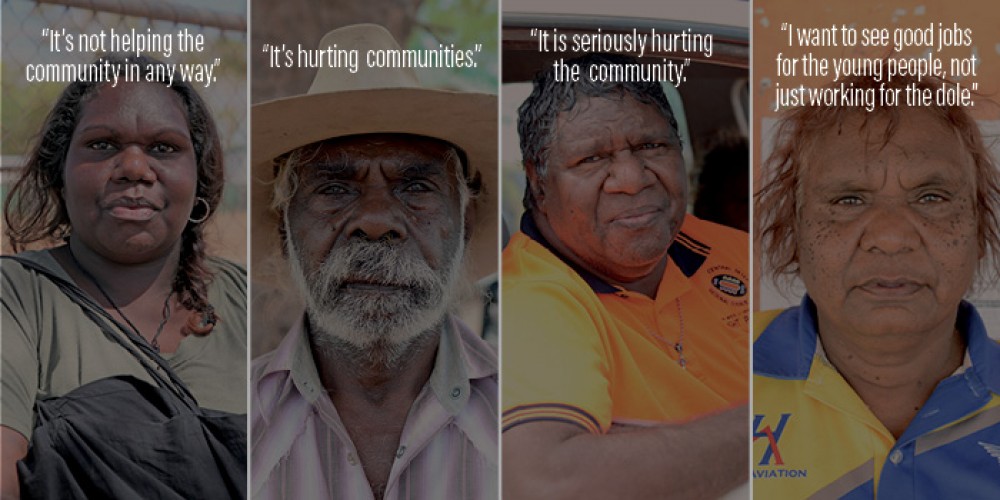
The Northern Territory’s Aboriginal Peak Organisations (APO NT) welcome the referral of a broad ranging inquiry into the controversial Community Development Program (CDP), to the Senate Finance and Public Administration References Committee.
”This inquiry is welcome and absolutely necessary because Aboriginal people in the bush are bearing the brunt of a punitive program that is failing to achieve outcomes,” said APO NT spokesperson David Ross, the Director of the Central Land Council.
“Our remote communities are feeling the combined impact of the program’s onerous work-for-the-dole requirements and the loss of local authority very painfully.”
Independent analysis of government data shows that penalties applied to CDP participants have more than quadrupled since the government introduced the program, and continue to rise.
Despite having only one twentieth of the caseload of the mainstream jobactive system, the CDP now accounts for more penalties than jobactive and punishes some of Australia’s poorest people.
“These penalties mean that a growing number of families can’t put food on the table and pay rent and electricity, and the pressure on those with stable incomes is mounting daily,” Mr Ross said.
He said the social security system fails to protect the most vulnerable because it does not appropriately assess them and does not allow job service providers to use their discretion when dealing with absences, and because participants out bush are finding it even tougher than mainstream job seekers to access the services of the Department of Human Services.
“Improving economic and social opportunity in remote communities is challenging,” he said.
“However the CDP does great harm to our communities while generating little opportunity.”
Mr Ross said the inquiry provides an opportunity to examine the appropriateness and effectiveness of the objectives, design, implementation and evaluation of the CDP in detail, and help generate ideas for reform.
APO NT has written to Minister Scullion seeking a collaborative process for review and improvement of the program.
“We are ready to engage in constructive dialogue with the Minister,” Mr Ross said.
“It is imperative that decisions about ongoing reform and delivery of the program are made in collaboration with Aboriginal communities.
”Ultimately, we are all looking for the same outcomes: increased work participation, new employment opportunities and local control over service design and delivery.”
APO NT wants remote employment service to
establish a program framework giving communities greater control over the design and implementation of employment services in their own location;
provide positive rewards for engagement, rather than punishment; and
focus attention and resources on long-term economic and social development goals.
“Getting the policy settings right is complex and we want to work with the government to achieve positive reform,” Mr Ross said.
“We are particularly pleased that the inquiry does not have to report until September because it is critical that the committee is able to travel to remote communities to hear directly from CDP participants about their experiences.”
